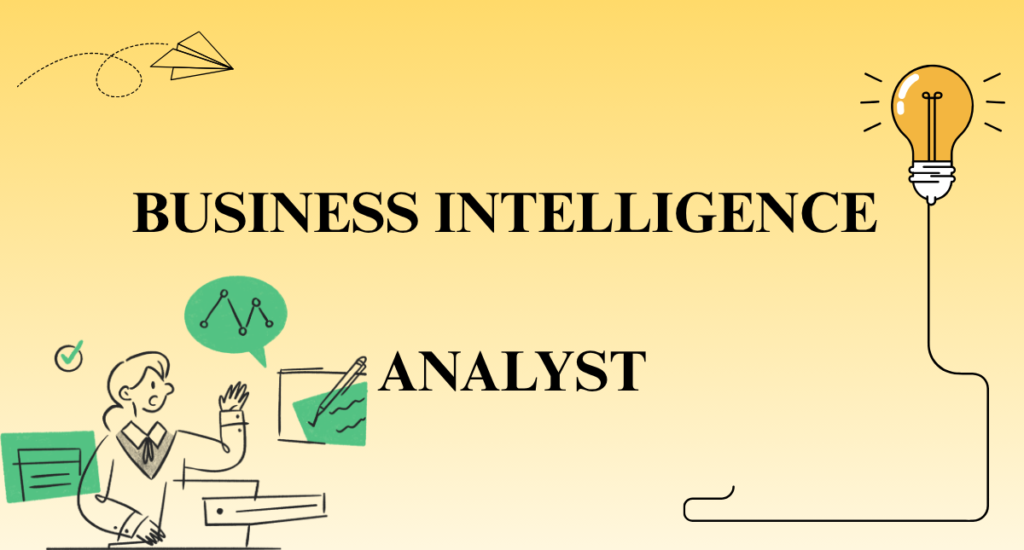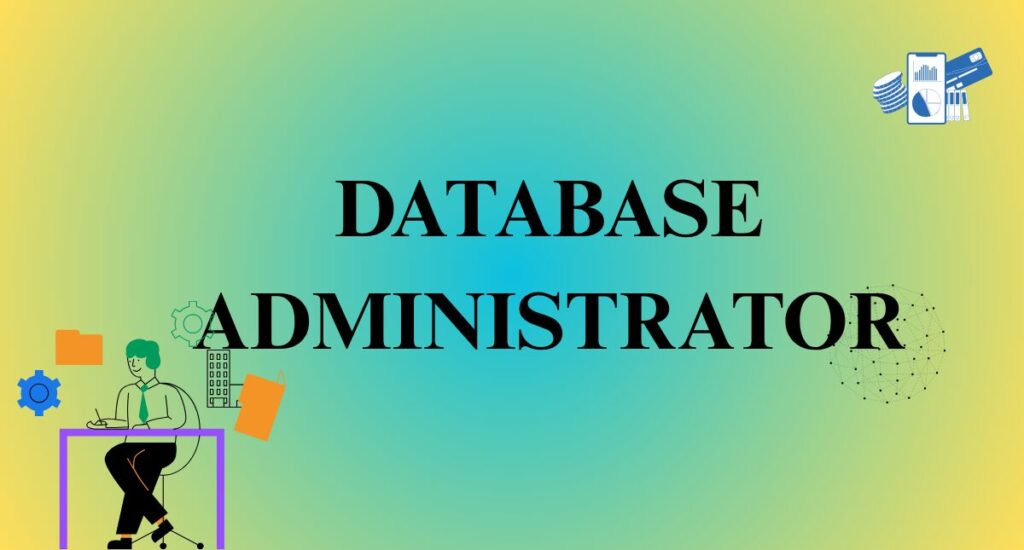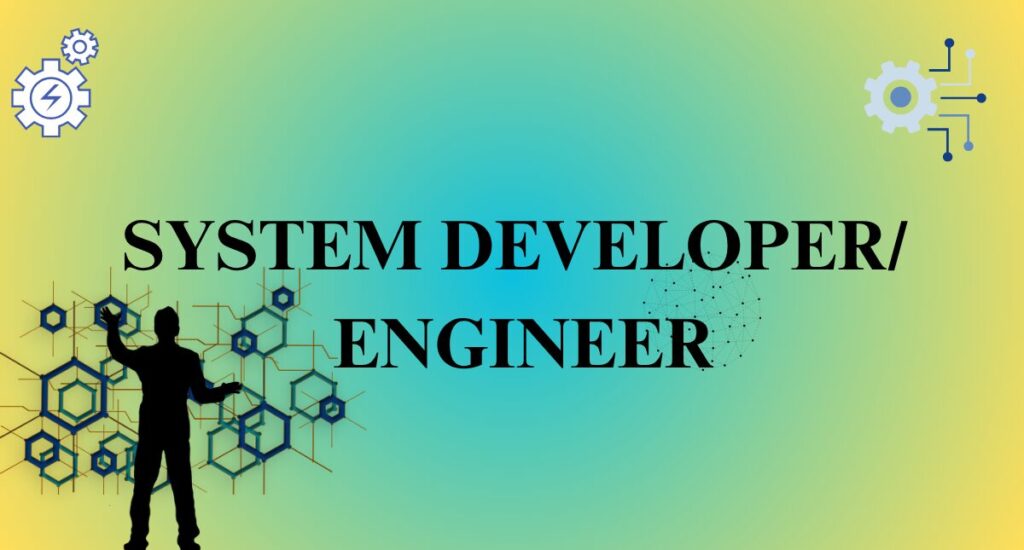
In today’s global era, technology is at the heart of every industry — from education and healthcare to finance and entertainment. After completing BCA, graduates have a wide variety of career paths to explore.
1] BUSINESS INTELLIGENCE ANALYST

What They Do ?
A Business Intelligence (BI) Analyst is a professional who helps organizations make smarter business decisions through data.
What Does a BI Analyst Do?
- Collecting and analysing data.
- Creating interactive dashboards and reports using tools.
- Identifying key business trends and opportunities.
- Collaborating with management to improve decision-making.
- Ensuring data accuracy and quality.
What are the Key Skills Required ?
| SQL | For extracting and managing data |
| Excel | For calculations and data cleaning |
| Data Visualization Tools | Power BI, Tableau, or Google Data Studio |
| Programming (optional) | Python or R for deeper analysis |
| Critical Thinking & Communication | To interpret data and explain insights clearly |
How to Become a BI Analyst After BCA ?
Learn Data Analytics Tools, Master SQL, Take a Certification Course, Work on Projects, Apply for Entry-Level Roles.
Why It’s a Great Career After BCA ?
High demand across all industries, Great combination of technical and business skills, Opportunities to grow into roles, Remote and global work opportunities.
2] CYBERSECURITY ANALYST

What They Do ?
A Cybersecurity Analyst is a professional responsible for protecting an organization’s computer systems, networks, and data from cyber threats
What Does a Cybersecurity Analyst Do?
- Monitoring network traffic for suspicious activity
- Identifying system vulnerabilities and fixing them
- Installing firewalls, antivirus software, and encryption tools
- Conducting regular security audits and risk assessments
- Responding to security incidents and performing investigations
- Training employees on cybersecurity best practices
What are the Key Skills Required ?
| Networking Fundamentals | Understanding TCP/IP, firewalls, VPNs, and protocols |
| Ethical Hacking | Knowledge of how hackers operate to protect systems |
| Operating Systems | Linux, Windows, and cloud-based platforms |
| Security Tools | Wireshark, Metasploit, Nessus, Splunk |
| Certifications | CompTIA Security+, CEH (Certified Ethical Hacker), CISSP |
How to Become a Cybersecurity Analyst After BCA ?
Build a Strong Foundation in Networking and OS, Learn Ethical Hacking & Security Concepts, Work on Real Projects, Start as a Security Intern, Network Support, or Junior Analyst to gain experience.
Why It’s a Great Career After BCA ?
3] SYSTEM ANALYST

What They Do ?
A System Analyst is a professional who acts as a bridge between business problems and technology solutions.
What Does System Analyst Do?
- Understanding the needs of clients or departments
- Analyzing current software systems and finding areas of improvement
- Designing new systems or modifying existing ones
- Coordinating between developers, designers, and users
- Creating system documentation and reports
- Testing systems and ensuring smooth implementation
- They don’t always code, but they must understand coding, data
What are the Key Skills Required ?
| Technical Skills | Understanding of programming languages, operating systems, and databases |
| Analytical Thinking | Ability to evaluate systems and propose better solutions |
| Software Development Knowledge | SDLC (Software Development Life Cycle) |
| Communication & Leadership | To explain technical details to non-technical teams |
| Project Management | Planning, documentation, and time management |
How to Become a Security Analyst After BCA ?
Understand Software & Systems, Learn Analysis & Design Tools, Build Communication Skills, project management, or ITIL.
Why It’s a Great Career After BCA ?
Great balance between technical and managerial work.
High demand in IT, finance, healthcare, and government sectors.
You can advance to roles like Project Manager, IT Consultant, or Business Analyst.
Opportunities to work globally or remotely.
4] DATABASE ADMINISTRATOR

What They Do ?
A Database Administrator (DBA) is a professional responsible for storing, organizing, securing, and managing data in a company’s database systems.
What Does a BI Analyst Do?
- Installing and configuring database systems (like MySQL, Oracle, or SQL Server)
- Designing and managing database structures
- Monitoring database performance and optimizing speed
- Backing up and recovering data in case of failure
- Setting user permissions and maintaining security
- Troubleshooting errors and ensuring data integrity
What are the Key Skills Required ?
| SQL | Core language for managing databases |
| Database Management Systems (DBMS) | Oracle, MySQL, PostgreSQL, MongoDB |
| Backup and Recovery Tools | RMAN, pgAdmin, or cloud-based tools |
| Operating Systems | Linux and Windows Server |
How to Become a Cybersecurity Analyst After BCA ?
Master SQL and DBMS Concepts, Take Specialized Courses, Learn About Cloud Databases, Start with Entry-Level Roles, Gain Hands-on Experience.
Why It’s a Great Career After BCA ?
Every organization relies on databases — constant demand for DBAs.
High job stability due to critical role in data security.
Opportunity to work in diverse industries — IT, banking, healthcare, retail, etc.
Path to advanced roles like Database Architect, Data Engineer, or Data Scientist.
5] SYSTEM DEVELOPER/ ENGINEER

What They Do ?
A System Developer (or Software Engineer) is a professional who designs, develops, tests, and maintains software systems and applications.
What Does a System Developer Analyst Do?
- Writing and testing code using programming languages like Java, Python, or C++
- Designing software architecture and user interfaces
- Debugging and fixing errors in existing systems
- Collaborating with designers, testers, and analysts
- Maintaining and upgrading existing applications
- Documenting code and creating technical reports
What are the Key Skills Required ?
| Programming Languages | C, C++, Java, Python, C#, JavaScript |
| Web Technologies | HTML, CSS, React, Node.js (for web-based systems) |
| Software Development Tools | Git, VS Code, Eclipse |
| Software Testing | Unit testing, debugging, automation tools |
How to Become a Cybersecurity Analyst After BCA ?
Strengthen Your Coding Skills, Learn Software Development Life Cycle, Build Real Projects, Do Internships, Keep Learning
Why It’s a Great Career After BCA ?
- One of the most popular and flexible career options for BCA graduates.
- Opportunities in almost every industry — from startups to multinational companies.
- High earning potential with remote and global job options.
- Scope to work independently as a freelance developer or start your own tech venture.
BCA graduates are in high demand across sectors such as software development, data analysis, cybersecurity, system management, and digital marketing. The key to success after BCA lies in continuous learning and skill development. As technology evolves, upgrading your technical knowledge and staying up to date with new tools, programming languages, and trends will help you stand out.
NammaBelagaviNews
